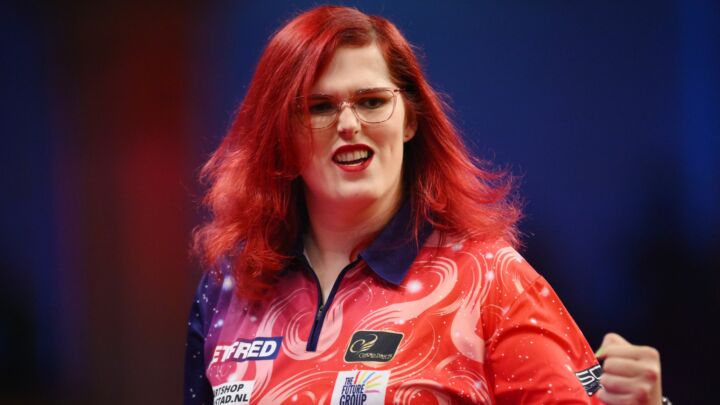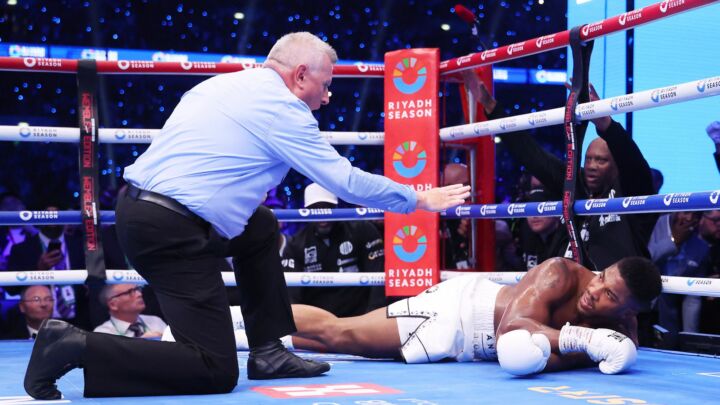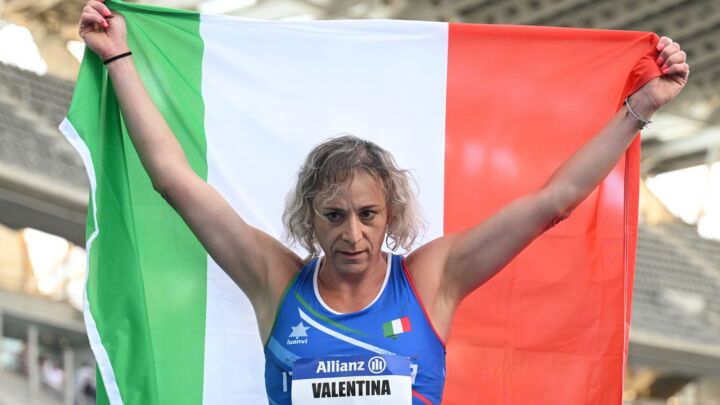The bleak future of football?
Atmosphere-free grounds could be the logical end of the crusade to sanitise the game.

Want to read spiked ad-free? Become a spiked supporter.
I don’t know the German translation of ‘Shit ground, No fans’. But that traditional English football chant came to mind while watching the weekend coverage of the Bundesliga, the first of Europe’s major leagues to return, behind closed doors with no fans allowed. In truth most of the grounds looked impressive, and the players did their best. But football with no fans was still, well, shit.
All eyes are on the German experiment to see the immediate future of European football in the age of corona, if and when other top leagues return in England, Italy and Spain. (Some countries, such as the Netherlands, France, Belgium and Scotland, have already called an end to their football season.) The extraordinary measures imposed ranged from temperature checks and frequently disinfected footballs, to cardboard cut-outs of fans in the stand and social distancing between players and coaches before the match and on the substitutes’ bench (but not on the pitch, of course, so what was the point of that?).
The atmosphere, or lack thereof, was variously described as eerie, haunting, sterile and surreal. Not for nothing do Germans apparently call football played behind closed doors Geisterspiele – ‘ghost matches’. The effect was especially depressing as the Bundesliga is famed for having the best atmosphere in European football, played in grounds where normal supporters can afford the tickets and can stand and even drink beer during the match. If Boris Johnson’s people seriously believe that staging such a spectral televised spectacle will ‘raise national morale’, it suggests they know even less about football fans than we might have imagined.
No doubt many of us will reluctantly accept such measures as the price to be paid for seeing any sort of football on TV during the coronavirus crisis. The potentially dire financial implications for the big clubs, in terms of lost TV money and sponsorship, made it inevitable that most top leagues would try to finish the season without fans; analysts suggest that the crisis could cost Europe’s top-flight clubs £3.5 billion over this season and next, soaring to £6.2 billion if they fail to complete their domestic competitions.
In this sense, the staging of matches purely for the big-paying television cameras only confirms modern football’s priorities. As we all know, it is money that makes Planet Football go round these days. (A few German fans did protest; at Augsburg they smuggled a banner into an empty stand, declaring ‘Football gives life – your business is sick’.)
Perhaps the worst thing, however, is that what we saw at the weekend has not emerged overnight in response to coronavirus – and, like other emergency powers, these things may not automatically disappear once the crisis abates. In football, as elsewhere, it is arguable that the reaction to Covid-19 has acted as a catalyst, accelerating and intensifying destructive trends that were already evident.
Could this be the logical endpoint of ‘nu-football’, the modern version of the people’s game that has been increasingly colonised by the media and middle classes in recent years? ‘Sanitised’, which observers used to describe the new Bundesliga experience, is a word some of us have long deployed to criticise the campaign to ‘clean up’ football in order to make it fit for respectable people in their living rooms.
In the new sanitised stadiums of the English Premier League, the authorities insist there should be no standing, no cheap tickets for teenagers to go with their mates, no swearing, no singing naughty songs or shouting offensive words at opposing fans and players (or indeed at your own team). Nothing, in fact, that makes going to the football so uniquely enjoyable for thousands of people. The nu-football elitists care about the big-money televised matches, with the crowd only tolerated to create a bit of background noise for the broadcast, almost like canned laughter. They have even made the rules a televised affair, with goals given or disallowed through the painful VAR process while the crowd is left in impotent ignorance. Those who have tried so hard to neuter spectators can now see what football without passionate fans really looks like.
Some of the apparently emergency measures on show in the Bundesliga did seem fittingly symbolic of longer-term trends in football. Disinfecting the ball? That’s effectively what the authorities have been trying to do to supporters and players for years. Cardboard cut-out fans in the stands? Perfect – you’ll get no nasty protests or profanities out of them! At some of the weekend matches, they even played loud music over the PA to an empty stadium – only a small turn of the dial from the way English officials (notably at my club, Manchester United) use cacophonous tunes to drown out unwanted noisy away supporters, or substitute for the home atmosphere the sanitisers have done so much to destroy.
The current enthusiasm for social distancing looks like an intense expression of the longstanding fear of the crowd in Western society. It’s one thing banning team photos and handshakes or making substitutes sit apart in an empty stadium. How they are ever going to get the crowd back into the ground while this regime remains unchallenged is a different matter altogether.
Perhaps we had another glimpse of the future in Germany, where Eintracht Frankfurt tested out transponder tracing devices on the few people allowed inside the stadium, which set off an alarm whenever you get ‘too close’ to somebody else wearing the device. Maybe the players will want one too, and football will finally become the non-contact sport some have dreamt of turning it into.
The English Premier League is now pressing ahead with its ‘Project Restart’ for televised football behind closed doors. Although things remain uncertain, the early Bundesliga experiment should help to assuage exaggerated fears about player safety and about fans congregating outside grounds (they didn’t in Germany, having seemingly internalised the lockdown as most have done over here).
Of course, many will be pleased to see some football on our TV again, even if it does mean we have to witness Liverpool winning the league for the first time in 30 years. Perhaps when they do, Liverpool’s players will applaud the empty Kop. After winning 4-0 on Saturday, Borussia Dortmund’s team went over and saluted the empty rows of their famous ‘Yellow Wall’ stand, which normally houses 25,000 fanatics. Football doesn’t get much more surreal and sanitised than that.
In a world where any extraordinary measure can casually be justified as ‘the new normal’ (sic), if we’re not careful we might be watching the bleak future of football.
Mick Hume is a spiked columnist. His latest book, Revolting! How the Establishment is Undermining Democracy – and what they’re afraid of, is published by William Collins.
Picture by: Getty.
Celebrate 25 years of spiked!
A media ecosystem dominated by a handful of billionaire owners, bad actors spreading disinformation online and the rich and powerful trying to stop us publishing stories. But we have you on our side. help to fund our journalism and those who choose All-access digital enjoy exclusive extras:
- Unlimited articles in our app and ad-free reading on all devices
- Exclusive newsletter and far fewer asks for support
- Full access to the Guardian Feast app
If you can, please support us on a monthly basis and make a big impact in support of open, independent journalism. Thank you.







Comments
Want to join the conversation?
Only spiked supporters and patrons, who donate regularly to us, can comment on our articles.